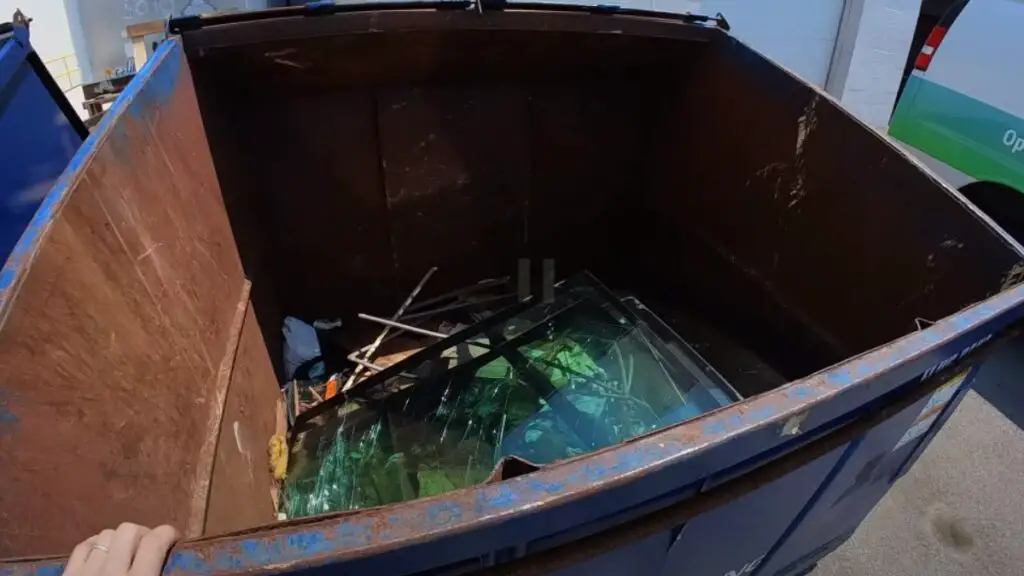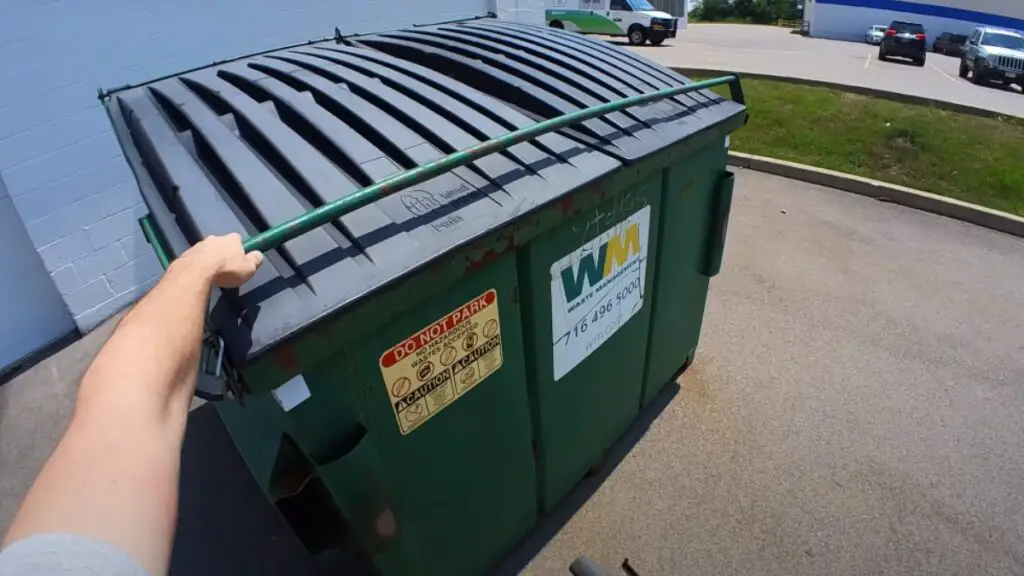Dumpster diving in Arizona is an unconventional yet increasingly popular activity.
While some view it as a method to reduce waste and promote sustainability, others see it as a way to uncover hidden treasures.
This practice offers exploration into the world of discarded items and often yields surprising and valuable findings.
In this article, we will explore whether it is legal or illegal to dumpster dives in Arizona.
Let’s dive in!
Dumpster Diving In Arizona

Arizona, known for its desert landscapes and unique ecosystem, has a not-so-prominent but thriving culture of dumpster diving.
This practice, although often overlooked, has become an unconventional means of resource reclamation for many residents.
According to a 2018 EPA report, the average American generates about 4.9 pounds of waste per day, a significant portion of which ends up in Arizona’s dumpsters.
However, the state’s annual recycling rate stands at just 34%, indicating that a large amount of potentially reusable materials remains unclaimed.
Dumpster diving, in this context, serves as a method of resource recovery, reducing waste, and promoting sustainability.
Is Dumpster Diving Illegal In Arizona?
Dumpster diving, the act of retrieving discarded items from a dumpster, sits in a legally gray area in many places.
In Arizona, it’s not explicitly legal, but it is outright illegal. The primary legal ruling comes from a 1988 Supreme Court case, California v.
Greenwood, which determined that individuals do not have an expectation of privacy for discarded items.
This, in essence, allows for dumpster diving throughout the United States, including Arizona, unless there’s a local ordinance against it or if the dumpster is on private property, in which case trespass laws could be violated.
However, it’s always a prudent idea to check with local Arizona city or town ordinances, or even with specific property owners, before embarking on a dumpster diving expedition.
Is Dumpster Diving At Night Illegal In Arizona?
While the legality of dumpster diving varies state by state in the US, it’s generally considered legal in Arizona unless explicitly prohibited by city or county ordinance.
The ruling from the 1988 Supreme Court case California vs. Greenwood established that individuals have no expectation of privacy when it comes to discarded trash, effectively making dumpster diving legal on a federal level.
However, it’s crucial to remember that trespassing laws still apply.
If a dumpster is on private property or clearly marked as ‘No Trespassing,’ then dumpster diving, whether day or night, could lead to legal trouble.
Furthermore, if a dumpster is locked or enclosed within a fence, it’s best to stay clear.
It’s also worth noting that while dumpster diving itself may not be illegal, the misuse of found items could lead to legal ramifications, especially if the items are sensitive in nature, such as personal documents.
In the interest of safety, many dumpster diving advocates suggest going during the day when visibility is better.
Arizona Dumpster Diving Laws
Dumpster diving, the act of scavenging through trash for usable items, is a practice regulated by law in various jurisdictions, including the state of Arizona.
According to Arizona law (13-1505. Trespassing), it’s considered trespassing if you enter someone else’s property without permission.
However, the enforcement of this law can be subjective and often depends on individual property owners.
As per a Supreme Court ruling in 1988 (California vs. Greenwood), individuals have no expectation of privacy concerning trash left in an accessible, public area.
This ruling has been used to validate dumpster diving in public areas.
However, it is crucial to remember that laws can vary by city and county within Arizona, and some local ordinances might prohibit the practice.
Also, diving into dumpsters located on private property or those explicitly marked with ‘No Trespassing’ signs is generally considered illegal.
Therefore, if you plan to engage in dumpster diving, it’s advisable to check with local law enforcement or legal professionals to ensure you’re not violating any laws.
So, if you are planning to dumpster dive at Carolina, Kentucky, or Bath And Body Works; you should check these state laws before going to your hunt.
Best Places To Go Dumpster Diving In Arizona
Arizona has become an unexpected hotspot for dumpster diving enthusiasts, with opportunities abounding in various locations across the state.
Phoenix, being the most populous city, offers a wealth of potential finds, particularly in commercial areas and college campuses.
Arizona State University, with its student population exceeding 70,000, often sees a surge in discarded items, especially during move-out periods at the end of semesters.
Tucson, the state’s second-largest city, is another promising location. Its historic Fourth Avenue is lined with diverse businesses, from clothing boutiques to antique shops, which frequently discard unsold items.
Tucson’s large student population from the University of Arizona contributes significantly to the volume of discarded items.
If you’re interested in electronic waste, the city of Chandler, home to a number of technology companies, is worth a visit.
Chandler’s tech sector often discards outdated or replaced electronics, providing an opportunity for valuable finds.
How Much Money Can You Make Dumpster Diving In Arizona?
While it might not be the most traditional way to make a living, dumpster diving can occasionally yield some surprising returns.
In Arizona, you can potentially make a few hundred to a thousand dollars per month, depending on a variety of factors.
These factors include the areas you target, the time you put into it, and the market for the items you recover.
High-income neighborhoods and commercial districts with retail stores are likely to be more lucrative than others.
Moreover, if you know how to repair or refurbish items or have a keen eye for valuable collectibles or antiques, you can significantly increase your profits.
It’s also crucial to stay updated on the market prices for scrap metal, as selling recovered metals can be a dependable source of income.
Keep in mind, however, that this is not a guaranteed or consistent way to make money, and it may also be subject to local laws and regulations.

Frederick Perez is the founder of Scrape Dude. He loves exploring and finding hidden treasures in unexpected places. Frederick has been dumpster diving and gold panning for years, turning his hobby into our website to share his adventures. He’s known for his friendly advice and exciting stories, inspiring others to discover the joy in these unique hobbies. His expertise makes Scrape Dude a trusted and fun place to learn and explore.


